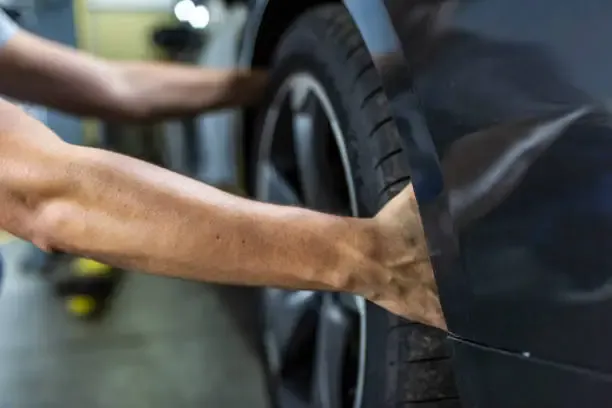How Long Do Car Tyres Last?
Have you ever worried about the condition of your car tyres? Tyres are a vital component that ensures driving safety and comfort. Just like the shoes you wear, car tyres have a certain lifespan. Over time and usage, the quality of tyres deteriorates, and their ability to grip the road diminishes.
Driving with worn-out tyres is extremely dangerous. Worn tyres can reduce road grip, increase the risk of aquaplaning on wet roads, and shorten braking distances.
To ensure the safety of yourself and your passengers, it is crucial to understand the factors that affect the lifespan of car tyres and know when they need to be replaced. With the right knowledge, you can anticipate potential dangers and continue to enjoy safe and comfortable journeys with your beloved car.
Factors Affecting the Lifespan of Car Tyres
The lifespan of car tyres is not only determined by the production date but also by several other factors. Let's discuss some key factors that can either shorten or extend the lifespan of your car tyres:
Usage and Mileage The first and most influential factor is the frequency of use and the distance travelled by your car. The more often the car is used and the farther it travels, the quicker the tyres wear out.
For example, cars that are frequently used for long-distance travel on motorways usually have a longer tyre lifespan compared to cars often used in city traffic conditions. In stop-and-go situations common in urban areas, tyres wear out faster due to the friction that occurs when the car accelerates from a stop.
Road Conditions The condition of the roads you drive on can also impact tyre wear. Driving on rough, potholed, or gravelly roads can accelerate tyre wear due to the potential for punctures or scratches on the tyre surface.
Conversely, driving on smooth roads such as motorways can help extend the lifespan of tyres because of the minimal friction with uneven road surfaces.
Tyre Pressure Incorrect tyre pressure can also affect tyre lifespan. Underinflated tyres can cause more rapid wear on the edges.
On the other hand, overinflated tyres may not make full contact with the road surface, reducing grip. Therefore, ensure you regularly check and adjust tyre pressure according to the guidelines in your car's manual.
When Is the Best Time to Replace Car Tyres?
Knowing when to replace car tyres is crucial for maintaining driving safety and comfort. Besides considering the factors affecting tyre lifespan mentioned above, you should also be alert to several signs indicating that tyres need to be replaced.
Recommended Tyre Age Generally, tyre manufacturers recommend replacing tyres after about 3 to 5 years. However, this is just a basic guideline. Other factors such as usage intensity and tyre condition should still be considered.
Signs That Tyres Need to Be Replaced There are several visual signs that can help you determine when tyres need to be replaced. Look for cracks on the tyre surface, especially on the sidewalls or near the tread.
Additionally, check for any bulges on the tyre surface, which are usually caused by frequent punctures. Most importantly, examine the tread depth. Tyres should be replaced if the tread depth is approaching or has exceeded the wear limit (usually about 1/16 inch or 1.6 mm).
Routine Tyre Maintenance To maximise the lifespan of your car tyres, routine tyre maintenance is essential. Perform regular tyre rotations to ensure even wear. Also, ensure you balance the tyres to avoid vibrations in the steering wheel at high speeds.
By performing regular tyre maintenance, you can detect potential problems early and extend the lifespan of your car tyres. Do not hesitate to take your car to a trusted workshop for a comprehensive tyre inspection if you feel unsure or notice any suspicious signs.
Car tyres are a vital component that ensures your driving safety and comfort. By understanding the factors that affect tyre lifespan and recognising the signs of when tyres need to be replaced, you can anticipate potential dangers and keep your car performing optimally.
Worn tyres can reduce road grip, increase the risk of aquaplaning, and shorten braking distances. This is very dangerous and can lead to accidents.
To ensure your and your passengers' safety, make sure you perform regular tyre inspections. Pay attention to the tyre production date, tread depth, cracks, and bulges on the tyre surface. Perform regular tyre rotations and balancing to maximise tyre lifespan.
If you are unsure about the condition of your car tyres or notice any suspicious signs, do not hesitate to take your car to the nearest authorised Suzuki workshop. Skilled and experienced Suzuki technicians will conduct a thorough inspection and provide the best recommendations for your safety and comfort on the road.

Post a Comment for "How Long Do Car Tyres Last?"